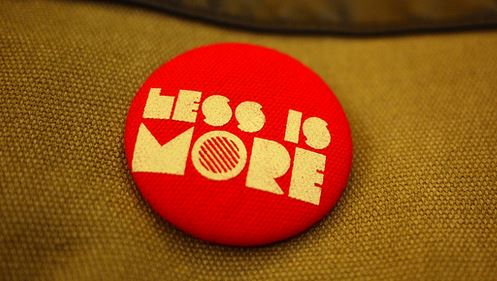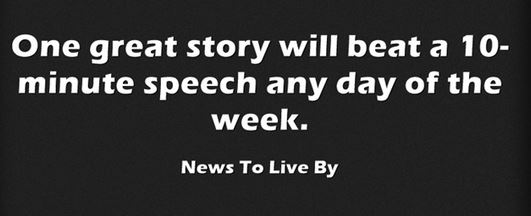The One Question Every Great Communicator Asks


Remember when Facebook only existed to let us stay in touch with family and friends?
Now the social network is cluttered with advertisements as Mark Zuckerberg monetizes everything we do or say.
Paul Budnitz recognized our frustrations and asked the one question of every great communicator:
Do I really need it?
Budnitz, 47, created Ello, a social network that doesn’t contain ads. At one point, the site had 35,000 sign ups an hour, and Budnitz claims he can monetize Ello through extra features like managing more than one account on the site.
Budnitz told Fortune magazine: “I want to change the world. I want to prove that advertising isn’t the only way to make money on the Internet.”
Will Ello continue to grow or fade away? Time will tell, but Budnitz’s instinct is right. It’s always about the audience and its experience with your product.
[quote]”Do I really need it?” The one question every great communicator asks.[/quote]How to apply “Do I really need it?” in your world
Everything you write, whether an email to one person or presentation to 5,000 people, requires the “Do I really need it?” treatment. When you cut what you don’t need, your argument becomes stronger and more discernible.
Here’s a checklist for various documents.
Resumes
– Do you provide too many bullet points under each job? Three is usually a good benchmark.
– Are you going on too long as you describe your duties at each company? Less is more.
– Is some of the information so old that it’s no longer relevant? For example, you list every internship even though you’ve been working for five years. Time to hit delete.
Cover Letters
– Do you spend too much time talking about yourself and not enough about how you can help the company prosper?
– Do you include unnecessary details about your life or go on a non sequitur that distracts the reader? You really don’t need that.
– Do you use your cover letter to summarize your resume or, better yet, use it to tell one great story? You really should do that.
Speeches and Presentations
– Practice your speech in front of someone else. Ask the person, “Does it go on too long?” If yes, go through each section and then ask yourself “Do I really need it?” Either find sections to remove, or you’ll give a boring speech. Your call.
See: How to Tell If Your Speeches Take Too Long
– Does your talk, at times, drift from the main topic or central argument? Locate the parts that aren’t essential and remove them.
– Do you spend too much time on any one section? Are there some sections you can cut out entirely? If so, delete delete delete.
– A speech isn’t about you. It’s about the people in the crowd taking your message to heart. “Does the audience really need it?” That’s what matters.
Emails
– Do you bury your main point amid all kinds of extra information? Only include what’s essential.
– Do you spend too much time explaining why something is wrong when all the reader needs is the solution?
– Is the email you’re about to send necessary at all?
See: Why You Don’t Add the Email Address Until You’re Ready to Send
—
Do I really need a snappy line to end this column? Nah.
What’s the best speech you ever heard, and why?
Share below!
Featured photo: Flickr




Related Articles
May 3, 2018
On Shutting My Mouth, Knowing My Room and Looking Out for #1
Listen and learn.
Read More
July 7, 2017
8 Email Mistakes That Make You Look Dumb
Yep, each one can ruin your message.
Read More
November 30, 2015
The Three-Second Trick to Impress on Phone Calls
Advice from Adele.
Read More